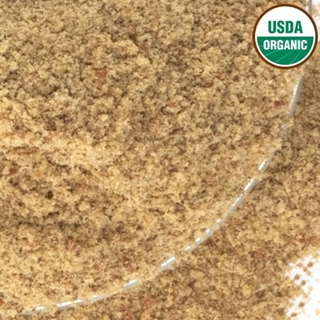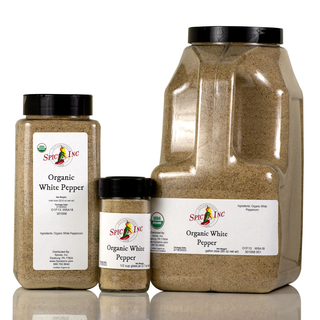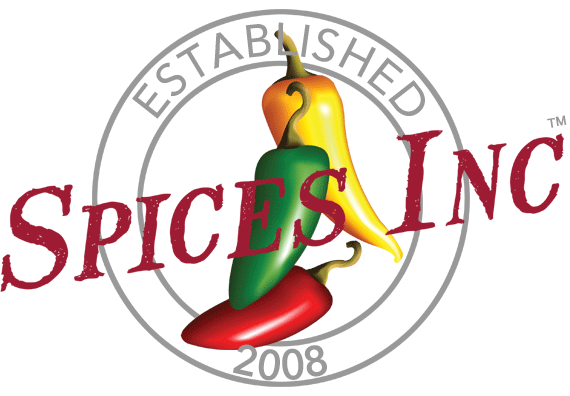Organic White Pepper




Organic White Pepper
Organic White Pepper, Piper nigrum, is also called organic white ground pepper, white ground pepper, organic ground white pepper, organic white pepper powder, or bulk organic white pepper. It has an essential oil content of about 1%.
Black and white peppercorns are grown on the exact same vine, but are processed differently. Peppercorns mature from a green fruit to a red fruit; green is easiest to harvest. White peppercorns are produced when green peppercorns turn yellowish, but aren’t red. At this stage of maturity, the peppercorns are removed from the vine and submerged in water or boiled to remove the outer skin, or pericarp. This reveals the white seed from under the skin, which is then sundried to use as white peppercorn.
Organic White Pepper is popular with: butchers; vegan cheese, snack, and jam manufacturers; and seasoning companies
Please visit our pepper and peppercorn page to browse our full selection of pepper products.
Flavor Profile
Organic White Pepper has a clean, pungent heat that lingers with a light floral flavor.
How To Use
Organic White Pepper can be used anywhere black pepper is used, though it should not be cooked for an extended period because it may turn bitter. It is often chosen for its aesthetic value and is excellent in white foods like mashed potatoes, rice, and cream-based sauces.
Try it with grilled meats and vegetables, pasta, dumplings, seafood, and hummus. White pepper is exceptionally popular in Asian cooking and is the source of heat in hot and sour soup. As is the case with black pepper, it has global appeal and can be paired with just about any spice, chile, or culinary herb as needed for a recipe.
| Also Called | organic ground white pepper, organic white pepper powder, or bulk organic white pepper |
| Species | Piper nigrum |
| Ingredients | organic white pepper |
| Flavor Profile | Clean, pungent heat that lingers, light floral flavor |
| Oil content | 1% |
| Recommended Uses | Grilling, saute, meats, vegetables, white foods like cream sauces and mashed potatoes, marinades, soups, stews |
| Cuisine | Global |
| How To Store | Airtight container in a cool, dark place |
| Shelf Life | 6-12 months |
| Country of Origin | Sri Lanka |
Nutrition Facts
Serving Size1 tsp
Amount Per Serving
Calories7
% Daily Value*
Total Fat0g0%
Saturated Fat0g0%
Trans Fat0g
Polyunsaturated Fat0g
Monounsaturated Fat0g
Cholesterol0mg0%
Sodium0.1mg0%
Total Carbohydrate1.7g1%
Dietary Fiber0.6g3%
Total Sugars0.0g
Added Sugars0g0%
Sugar Alcohol0.0g
Protein0.2g0%
Vitamin D0mcg0%
Calcium84mg6%
Iron0mg0%
Potassium84mg2%
*The % Daily Value (DV) tells you how much a nutrient in a serving of food contributes to a daily diet. 2,000 calories a day is used for general nutrition advice. These values were calculated and therefore are approximate. For more accuracy, testing is advised.
